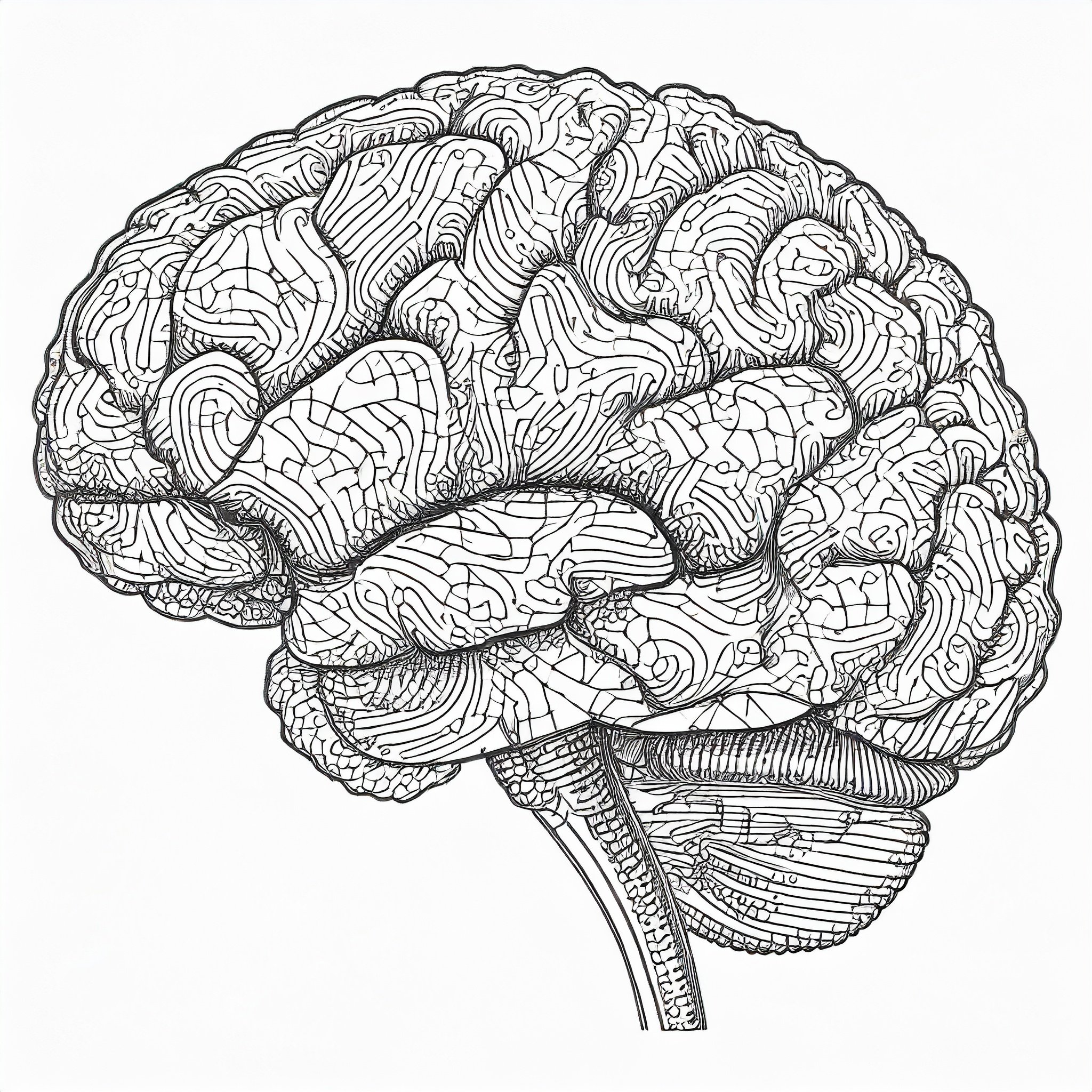
Driven by Research
Tutor Expertise and Knowledge
At Larch Tuition, our lessons are rooted in teacher expertise; we possess a deep understanding of the nuances of the English language, which allows us to not only anticipate but also effectively address common student errors, all while offering personalised guidance. Our expertise extends beyond subject matter; it encompasses a comprehensive understanding of teaching techniques and curriculum organisation. This allows us to provide clear explanations, examples, and tasks designed to support your child’s learning journey. We are adept at structuring the curriculum cohesively, ensuring logical progression, and creating diverse explanations. This expertise is intricately woven into our curriculum, guaranteeing an effective and tailored learning experience designed just for your child.
“One characteristic of experienced teachers is their ability to anticipate students’ errors and warn them about possible errors that some of them are likely to make” (Rosenshine, 2010:23).
Lesson Structure
Our approach aligns with research findings that emphasise the importance of providing a clear purpose and context for learning activities. Our curriculum is designed to challenge students appropriately, promoting deep thinking and the interconnectedness of ideas rather than rote memorisation. We carefully plan curriculum sequencing to ensure prerequisite knowledge is readily available when needed, and we build in opportunities for review and adaptation as part of the teaching process.
We understand that new learning involves multiple phases, from practice to consolidation, and ultimately, to independent and fluent application. Our teaching approach acknowledges these phases, and we monitor and support each student's progress, allocating ample time for each stage. We present new content with concise, engaging explanations tailored to students' needs, striking the right balance between depth and complexity. Distributed practice is integrated into our curriculum, involving spaced learning sessions with deliberate intervals for optimal retention and fluency. Students are given opportunities to apply concepts in a variety of contexts with guidance and independently.
“Presenting great explanations is not just a generic skill, like being a good communicator: it depends on a detailed knowledge of the content and ideas being explained and how they are learnt” (Coe et al., 2020:33).
Scaffolded Instruction
Our curriculum is designed with scaffolding in mind, offering tasks that can be adjusted to suit the diverse readiness levels and learning capacities of our students while maintaining high expectations for their success. This gradual process ensures that students can smoothly transition from guided to independent practice, with an emphasis on over-learning for effortless recall. Modelling is an important aspect of this approach, enabling novice learners to develop independence and metacognitive skills. We begin with direct support, progressively stepping back as students move towards independent work. This approach nurtures cognitive and metacognitive abilities, transforming them into ingrained habits that support lifelong learning.
“Teachers need to believe that children can learn difficult and complex ideas; this is what school is about. But they must be content that often pupils can only do this one step or a few steps at a time. Gradually teacher and pupil negotiate the path to the specialised domain knowledge” (Bliss, 1996: 60).
Schemas and Working Memory
Working memory acts as a mental workspace where students temporarily store and process information. Cognitive load, on the other hand, encompasses the broader concept of the mental effort and resources required for a task, which can influence working memory. To support effective learning, we implement instructional techniques that help manage cognitive load and optimise working memory capacity. Our approach includes strategies like providing worked examples, structuring lessons from simple to complex and offering opportunities for students to consolidate and retrieve learning. Our curriculum also promotes the development of schemas, mental frameworks that aid efficient information organisation, further reducing the strain on working memory.
“Where we can draw on existing knowledge from the long-term memory, we increase capacity; this is one reason why knowledge matters and why learners need to be taught to first try and activate prior knowledge” (Education Endowment Foundation, 2021: 19).
Questioning
Questioning plays a pivotal role in our teaching approach. It serves dual purposes: assessment and stimulation. We employ thoughtful and precise questioning to consistently evaluate our students' understanding and knowledge. Simultaneously, we use questions to foster an engaging and intellectually stimulating learning environment. Our goal is to ignite our students' cognitive processes, encouraging them to articulate their thoughts, reinforce their comprehension, and expand their vocabulary.
“Questions posed in classroom instruction advance classroom dialogue, facilitate student thinking, and encourage participation” (Hill, 2016: 661).
Feedback and Formative Assessment
Feedback and formative assessment play essential roles. These processes have a dual purpose: they inform our teaching strategies and enhance student learning. We provide timely and targeted feedback to address misconceptions and guide students toward a deeper understanding. Formative assessment is a crucial part of our teaching, ensuring that students are continually supported and guided to achieve independent mastery.
“Feedback… is one of the most powerful influences on learning performance” (Hattie and Zierer, 2017:81).
Motivation and Growth Mindset
We emphasise the importance of student mindset and motivation. We encourage students to attribute their successes and failures to factors within their control, such as effort and strategy, fostering a growth mindset that supports future success. Our teaching includes explicit instruction in strategies for planning, monitoring, and evaluating learning, all within the context of the specific content they are studying. We model these processes, highlighting our own planning and self-regulation, while also encouraging students to self-explain their thinking. This approach cultivates self-regulated learners who are aware of their strengths and weaknesses, motivating themselves to engage in and enhance their learning. We understand that intrinsic motivation leads to deeper understanding and long-term learning gains. We believe in the power of motivation, recognising that a supportive and encouraging learning environment can inspire students to reach their full potential.
“How different the same learner’s learning process can be when he hears the words, ‘You can do it. We believe in you.’ His interest will grow, and his motivation will increase, unleashing powers he never knew he had in him. Faith really can move mountains.” (Hattie and Zierer, 2017:40).
-
Ayres, P., and Paas, F. (2012) Cognitive Load Theory: New Directions and Challenges. Applied Cognitive Psychology, 26, 827–832.
Black, P. and Wiliam, D. (1998) Inside the Black Box: Raising Standards Through Classroom Assessment. London: GL Assessment Limited.
Coe, R., Raunch, C. J., Kime, S. and Singleton, D. (2020) Great Teaching Toolkit Evidence Review. Available at: https://www.cambridgeinternational.org/Images/584543-great-teaching-toolkit-evidence-review.pdf
Crooks, T. (1988) The Impact of Classroom Evaluation Practices on Students. Review of Educational research, 58, (4), 438-481.
Education Endowment Foundation (2018) Feedback & Monitoring Pupil Progress. Available at: https://educationendowmentfoundation.org.uk/school-themes/feedback-monitoring-pupil-progress/
Education Endowment Foundation (2021) Improving Literacy in Key Stage 2 Guidance Report. Available at: https://d2tic4wvo1iusb.cloudfront.net/production/eef-guidance-reports/literacy-ks2/EEF-Improving-literacy-in-key-stage-2-report-Second-edition.pdf?v=1698217284
Education Endowment Foundation (2021) Metacognition and Self-regulated Learning Guidance Report. Available at: https://d2tic4wvo1iusb.cloudfront.net/production/eef-guidance-reports/metacognition/EEF_Metacognition_and_self-regulated_learning.pdf?v=1698211952
Hogan, T., Bridges, M., Justice, L. and Cain, K. (2011) Increasing Higher Level Language Skills to Improve Reading Comprehension. Focus on Exceptional Children, 44 (3), 1–19.
Lyon, G. R. and Weiser, B. (2009) Teacher Knowledge, Instructional Expertise, and the Development of Reading Proficiency. Journal of Learning Disabilities, 42, (5), 475-480.
Rosenshine, B. (2010) Principles of instruction; Educational practices series. The International Academy of Education, 21, 1-32.
Sadler, R. (1989) Formative Assessment and the Design of Instructional Systems. Instructional Science, 18, 119-144.
Shulman, L. (1987) Knowledge and Teaching: Foundations of the New Reform. Harvard educational review, 57, 1, 1-21.
Sweller, J. (1988) Cognitive Load During Problem Solving: Effects on Learning. Cognitive Science, 12, 257-285.
Wiliam, D. (2011) Embedded Formative Assessment. Bloomington: Solution Tree Press.
Vygotsky, L.S. (1978) Mind in society: The development of higher psychological processes. Cambridge: Harvard University Press.







